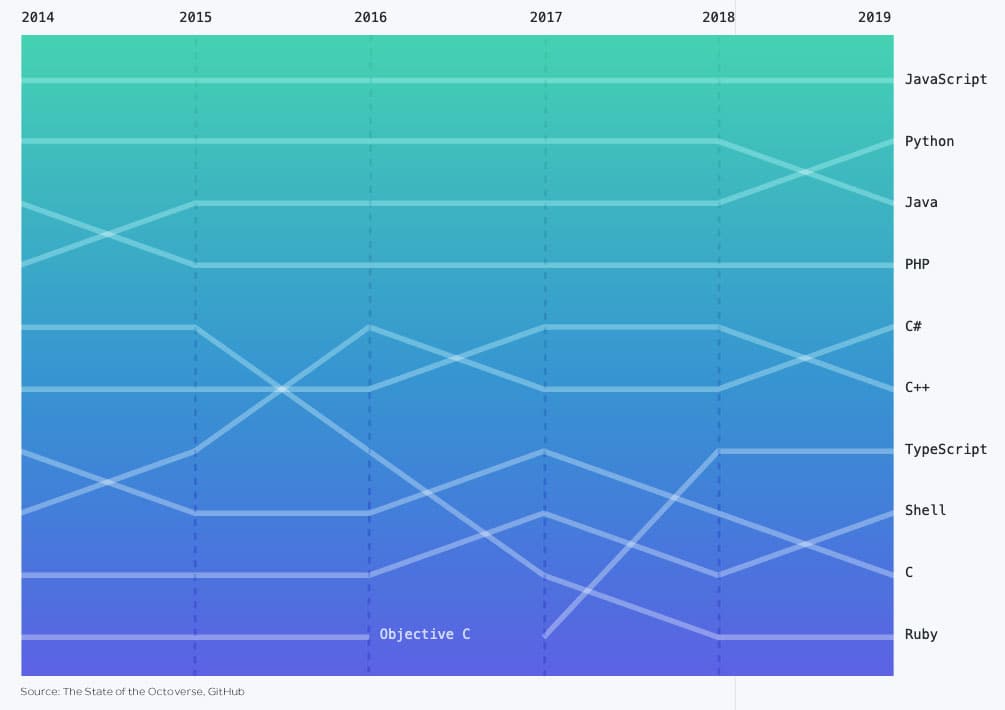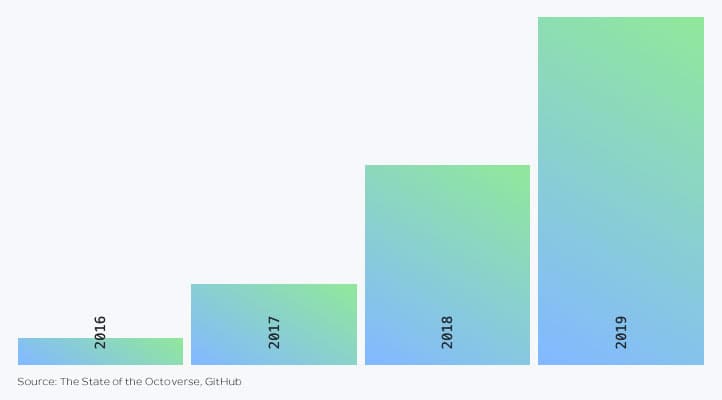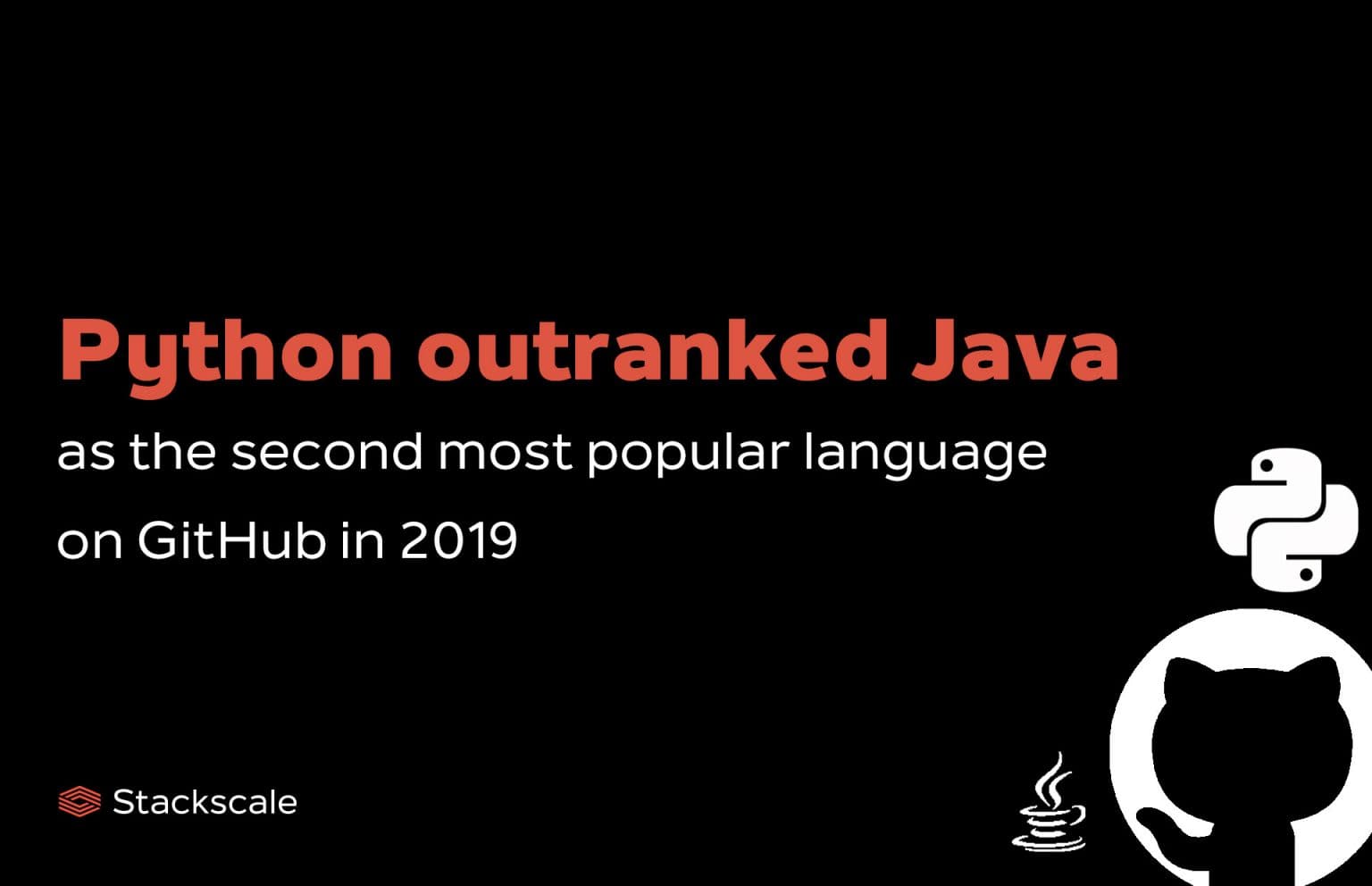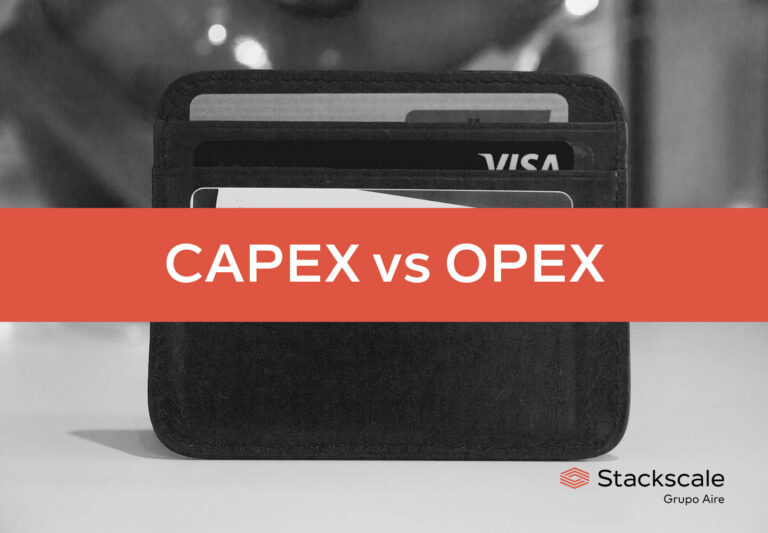Among the trends taking place on GitHub over the last year, Python’s outranking on the programming languages ranking is worth highlighting. In 2019, Python outranked Java on GitHub (by repository contributors), as specified on the yearly GitHub report — “The State of Octoverse”.
Python outranks Java on GitHub by number of repository contributors
In 2019, Python has passed Java as the second most popular language by repository contributors on GitHub. As shown in the following graphic, Python, C# and Shell are the only programming languages that have gone up within the top 10. Nevertheless, JavaScript, Python and Java remain at the top 3 since 2015.
Programming languages ranking on GitHub from 2014 to 2019

Regarding the number of contributors to repositories with detectable primary programming languages, Python grew 151% between October 1, 2018 and September 30, 2019. But the programming languages that are growing faster are Dart (532%), Rust (235%) and HCL (213%).
What’s behind Python’s growth?
Python has grown considerably due to the rise of domains such as data science and artificial intelligence. As a consequence, even though GitHub has traditionally been focused on software development, the latest stats show data science professionals are making a place for themselves on the platform.
We’ve experienced this growth first-hand. The number of companies looking for cloud solutions for Big Data has grown considerably; as our VP Sales, David Carrero, explains:
“Over the last years, at Stackscale we’ve met more and more companies that have become aware of the importance of taking advantage of Big Data, and rely in private cloud solutions as a cost-effective alternative for storage, analytics and data sharing.”
Repositories about topics such as “Deep Learning” or “Natural Language Processing (NLP)” —where Python is the primary language— are growing in number on GitHub. As an example, Natural Language Processing repositories have increased impressively from 2016 to 2019, as shown in the following graphic.
Growth of NLP repositories on GitHub between 2016 and 2019

Short biography of Python
- Release year: 1991.
- Conception: late 1980s, as a successor to the ABC language.
- Place: Centrum Wiskunde & Informatica (CWI) in the Netherlands.
- Designer: Guido van Rossum.
- License: Python Software Foundation License (PSFL); a permissive free software license, compatible with GNU General Public License.
- Paradigm: multi-paradigm, functional, imperative, object-oriented and reflective.
- Applications: web development, scientific and numeric computing, teaching programming and more.
- Core philosophy: summarized in 19 principles in the document “Zen of Python”, written by the Pythoneer Tim Peters.
- Odd fact: its name comes from the British comedy group Monty Python, because its creator, Guido van Rossum, was a big fan of the group when developing the language.
You can read more about the trends on GitHub from October 1, 2018 to September 30, 2019 in The State of the Octoverse 2019 report.




